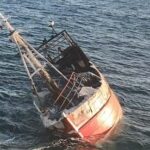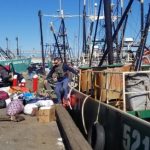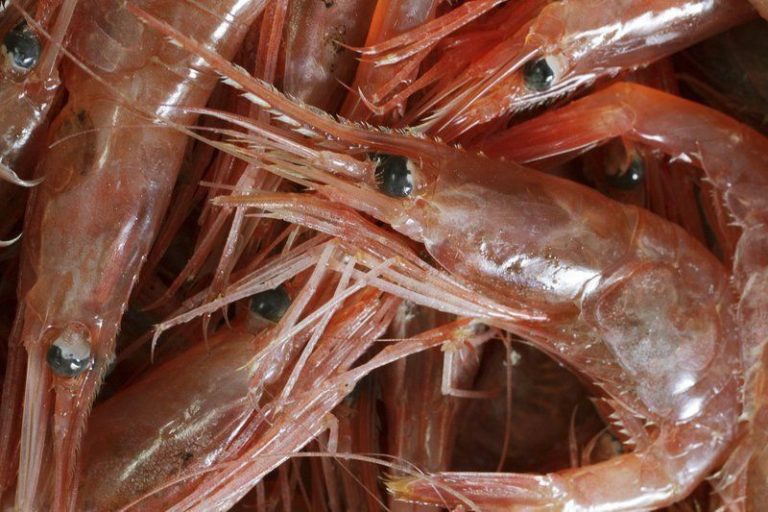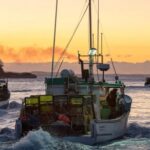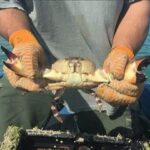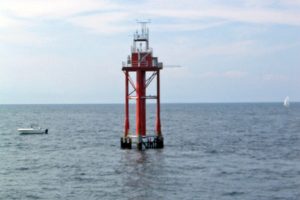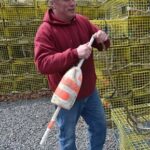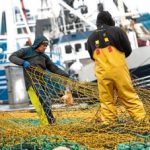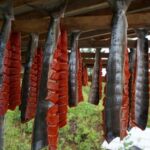Tag Archives: rebuttal

Rebuttal: Ropeless lobstering is not the answer
I grew up in a lobster fishing family and I think I know a thing or two about how to live, thrive, and survive on the water. So, I was surprised to read a recent column, (“Ropeless Technology Ahead of the Wave,” March 2) authored by a “wild mushroom entrepreneur” who seems to think she actually knows best when it comes to the future of the lobster industry. It is accurate to say the Maine lobster industry faces an uncertain future, but not because of the endangered North Atlantic right whale. The real threat comes from Washington, DC,,, >click to read< By John Leonard 09:51
This article more than appalled me, I was hurt and offended. Genevieve McDonald, F/V Hello Darlin’ II
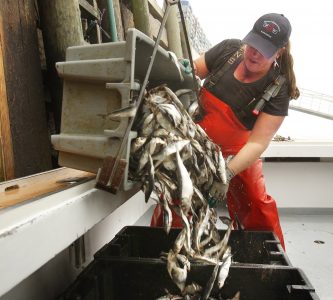 I am a commercial fisherman out of Stonington, Maine, and though I do not speak on their behalf I am the Downeast Region Representative on the Maine Lobster Advisory Council. I was utterly appalled by the article, What it’s like to kill hundreds of lobsters a day, written by “coastal reporter” Alex Acquisto. click here to read the story The Maine lobster industry is not only vital to the economy of coastal Maine, but is also one of the last natural resource revenue builders in the state of Maine. Through the Maine Lobster Marketing Collaborative fishermen have invested millions of dollars to promote Maine lobster. But it’s more than that – the Maine lobster industry is iconic. For many of your readers in Washington, Hancock, Waldo, and Knox counties lobster is integral to our culture, identity, and sense of place. click here to read the opinion piece by Genevieve McDonald, F/V Hello Darlin’ II, Stonington, Maine 10:59
I am a commercial fisherman out of Stonington, Maine, and though I do not speak on their behalf I am the Downeast Region Representative on the Maine Lobster Advisory Council. I was utterly appalled by the article, What it’s like to kill hundreds of lobsters a day, written by “coastal reporter” Alex Acquisto. click here to read the story The Maine lobster industry is not only vital to the economy of coastal Maine, but is also one of the last natural resource revenue builders in the state of Maine. Through the Maine Lobster Marketing Collaborative fishermen have invested millions of dollars to promote Maine lobster. But it’s more than that – the Maine lobster industry is iconic. For many of your readers in Washington, Hancock, Waldo, and Knox counties lobster is integral to our culture, identity, and sense of place. click here to read the opinion piece by Genevieve McDonald, F/V Hello Darlin’ II, Stonington, Maine 10:59
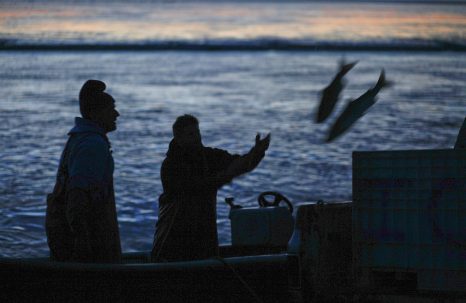
Rebuttal: The actual, factual new realities of Cook Inlet salmon – Catherine Cassidy of Kasilof
In his opinion piece published in the Alaska Journal of Commerce on Feb. 8, (Click here to read it) Mr. Karl Johnstone, presumably from his home in Arizona, gave a eulogy at the graveside of Cook Inlet commercial salmon fishing. Actually, the industry is alive and well and helping Alaskans get through these economic hard times. Mr. Johnstone uses the same old tired, outdated arguments: there is not enough salmon in Cook Inlet for all users; Cook Inlet salmon can’t compete with farmed salmon, sportfisheries are so much more valuable than commercial fisheries; etc. He cites an economic report about angler spending that was conducted prior to the national recession in 2008 and the recent king salmon decline and compares the numbers to the very lowest possible measure of commercial harvest value in Cook Inlet on a bad year. Johnstone claims that Alaska salmon can’t compete with farmed salmon. Twenty years ago that was a problem but the industry adapted and now wild Alaska salmon have a solid market niche and Cook Inlet sockeye is a very premium, sought-after product in America. The worst economic lie that he and his pals have been promoting is that the sport industry and personal use fisheries could actually grow large enough to replace the value of the commercial industry to our state. Then, she pins him. Continue reading the op-ed here 13:46
Jerry Schill, NCFA responds to outdoor columnist Ed Wall
 In response to Ed Wall’s Outdoors column, “Fisheries should be managed for all, by all,” I offer the following comments. Mr. Wall mischaracterized my position on the referendum when he wrote that “Jerry Schill…is particularly disturbed by the fact that HB 1122 would allow a referendum on the issue by the state’s voters in the upcoming election in November. He is apparently concerned about citizens all across the state would be allowed to voice their opinions about something that he feels should be controlled solely by persons — and their representatives — in the coastal counties.” I never said such a thing. I do not favor an illegal action, and that is what it would be if the bill in question was passed as Rep. Billy Richardson suggests. On the subject of the net ban: Read the rebuttal here 22:38
In response to Ed Wall’s Outdoors column, “Fisheries should be managed for all, by all,” I offer the following comments. Mr. Wall mischaracterized my position on the referendum when he wrote that “Jerry Schill…is particularly disturbed by the fact that HB 1122 would allow a referendum on the issue by the state’s voters in the upcoming election in November. He is apparently concerned about citizens all across the state would be allowed to voice their opinions about something that he feels should be controlled solely by persons — and their representatives — in the coastal counties.” I never said such a thing. I do not favor an illegal action, and that is what it would be if the bill in question was passed as Rep. Billy Richardson suggests. On the subject of the net ban: Read the rebuttal here 22:38


































